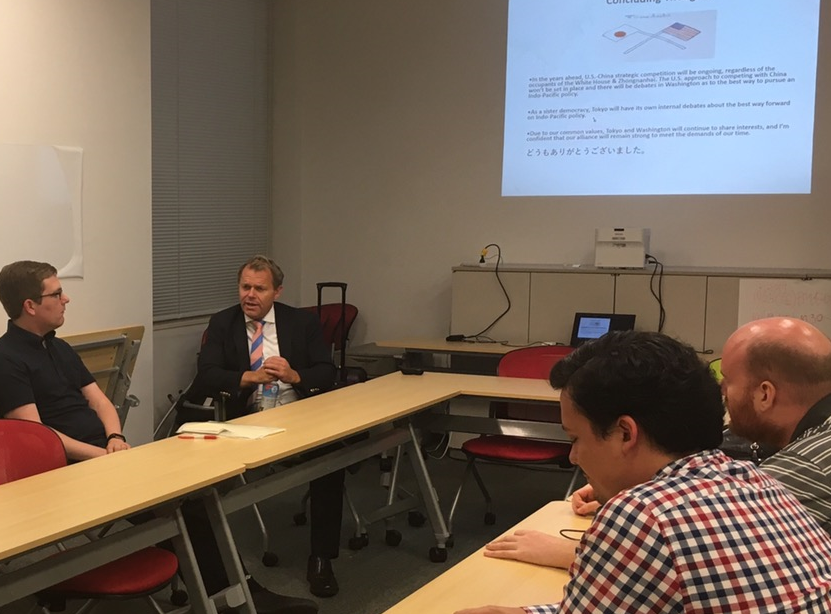On September 30, 2019, Waseda University’s Global Asia Research Center hosted a workshop entitled “The 2020 U.S. Presidential Campaign and Washington’s Evolving Indo-Pacific Strategy: An Update.” Prof. Ted Gover of Claremont Graduate University made a special presentation on political issues arising in the Indo-Pacific area. He initiated his talk by presenting the prospects of the upcoming presidential election in the U.S. and continued to talk about the complex aspects of the political tension growing in the Asia-Pacific (Indo-Pacific) area.
First of all, Dr. Gover explained theories of why Donald Trump won the previous election and the possibility of Trump’s re-election. According to his prediction, President Trump’s prospects for re-election in 2020 will be substantial due to the benefits of incumbency, a strong U.S. economy, and no highly unpopular wars. However, American society is facing so-called “Trump fatigue” due to his inhumane immigration policy, Ukraine scandals, and inappropriate behavior/statements. Dr. Gover also illustrated and analyzed the presidential candidates in the Democratic Party, explaining the Democrats’ Indo-Pacific policy ideas in comparison with those of Trump’s.
After that, Dr. Gover presented the issues of the U.S. and China’s rivalry in trade and talked about the background reasons why the U.S and China went to the trade war. For ideological and domestic political reasons, China avoids the appearance of bowing to foreign pressure. In contrast, Trump’s policy no longer pursues strategic engagement with China, but “strategic competition.” As a result, India and Vietnam will be benefiting from the intensified U.S.-China rivalry. Moreover, Trump is trying to build up a basic relationship with North Korea by pulling it away from China’s orbit. Dr. Gover further expanded his talk by focusing on the relations between Japan, China, and the United States. It is noteworthy to know Japan is not only dependent on the export to Chinese market but also hosts over 8 million Chinese tourists each year. Under these circumstances, Trump has continued to support the U.S.-Japan alliance, especially for security strategies.
After the presentation, a lively discussion went on. Participants brought up a variety of questions related to the 2020 presidential election and diplomatic relationship between the U.S and other countries in the Indo-Pacific area.
